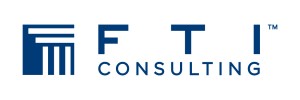5 August, 2016
Japanese Prime Minister Shinzō Abe has publicly announced that he intends to visit Iran in August 2016. This is a significant statement for burgeoning Japan/Iran relations and is the first trip by a Japanese leader since the late Takeo Fukuda’s visit in September 1978. This mission follows Tehran’s guarantee of up to US$10 billion of Iranian investments by Japanese companies in conjunction with a bilateral investment treaty between the two countries in February 2016. In the official press release for this agreement Japan’s Ministry of Economy, Trade and Industry emphasised the “great potential” of Iran for Japanese investment.
The Attraction of Iran
Iran is the second largest economy in the Middle East and North Africa, after Saudi Arabia, and recent World Bank forecasts predict Iran’s economy will grow at a rate of 6% a year by 2018, which is almost twice the projected annual aggregate rate of developing countries.
With a population of approximately 78 million, Iran also has the second largest proven gas reserves in the world, as well as the fourth largest oil reserves and significant other natural resources. Urbanisation, modernisation and the country’s young demographic are creating burgeoning consumer demand, especially focusing on technological products.
Japan is especially well placed to capitalise on attractive investment opportunities in Iran given the history of positive relations between the two countries, even throughout the sanctions era. In contrast to the anti-western attitudes often expressed by Iranian politicians, Japan is viewed as a partner with whom Iran can easily do business with. In February 2016, Iran’s Economic and Finance Minister Ali Tayebnia commented that there have been no ‘black points’ in Iranian-Japanese relations.
Activities of Japanese Companies in Iran
Following the lifting of sanctions by the U.S. and the EU in January 2016, Japan lifted key sanctions against Iran which included bans on new investments in the oil and gas sector using export credits. Japanese companies have responded by exploring the Iranian market and seeking out Iranian partners, particularly in the energy sector. Moreover, corporations that had greatly downsized their Iranian operations or pulled out completely due to the sanctions are now expected to resume investment and exports.
Japanese corporates have been encouraged in these endeavours by the Iranian state. In early June 2016, Amir Hossein Zamani Nia, Iran’s Petroleum Minister for International Affairs, met with a major Japanese trading firm’s senior management in Tehran and urged the company to invest in Iranian upstream, downstream and petrochemical projects. Earlier this year, an Iranian energy official at Iran’s National Petrochemical Company stated that a major Japanese conglomerate, in conjunction with Germany’s industrial gases company Linde, was planning to invest US$4 billion in Iranian petrochemical products.
Risk Factors and Mitigation
Alongside the extensive opportunities which both the Japanese government and private Japanese companies are seeking to capitalise on, the risks of doing business in and with Iran remain significant.
Iran’s Islamic Revolutionary Guard Corp Ties
For companies considering investment in Iran, one of the most prominent risk factors is the need to avoid accidental engagement with front companies of Iran’s Islamic Revolutionary Guard Corps (“IRGC”). This military body which reports directly to the Supreme Leader Ali Khamenei, has extensive business interests and remains under sanctions related to its alleged support of terrorism. In the sanctions era, the IRGC and its engineering company Khatam al-Anbia became the only domestic entity with the capabilities to conduct large strategic projects such as expansion of the South Pars gas field. From 2005-2011, the Iranian government granted it more than US$25 billion worth of projects. The IRGC is unlikely to surrender its market dominance easily, and while Iran’s President Hassan Rouhani aspires to liberalise the Iranian economy, he will probably be forced to protect the IRGC’s involvement in the most strategic sectors including ports, airports, telecommunications, national infrastructure projects and defence. Targeted due diligence, including discreet interviews with knowledgeable sources, is one way to mitigate the risk of partnering with IRGC-related entities.
Opacity of Corporate Ownership Structures
Companies not listed on the Tehran Stock Exchange are not required to declare their shareholders, though corporate registry checks on their boards of directors can sometimes give an indication of ownership. Further muddying the waters is the fact that privatisation since 2006 in Iran has often involved sale of assets to other quasi-state bodies. Some of which are connected to sanctioned entities, rather than truly private investors. On-the-ground source enquiries can help identify any concealed shareholders and establish an understanding of the true ownership of private companies.
Political Risk
Lastly, the current pro-integration political climate in Iran may change. At present, some politicians who are most supportive of Rouhani’s liberalisation programme are those, like former President Akbar Hashemi Rafsanjani or Speaker Ali Larijani, whose personal business interests mean they stand to gain the most. However, investors should watch for indications of a shift in the political climate. For instance, if Rouhani fails to be re- elected as President next year, or if a change in the U.S. political leadership prompts more hardline attitudes on both sides. This could lead to Rouhani allies falling out of favour and even becoming subject to politically-motivated corruption investigations under a future Iranian administration. A thorough understanding of the business and political context, and an awareness of political and business rivalries between different camps, will therefore be key for new entrants into the Iranian market.
For further information, please contact:
Greg Hallahan, Senior Director, FTI Consulting
greg.hallahan@fticonsulting.com





